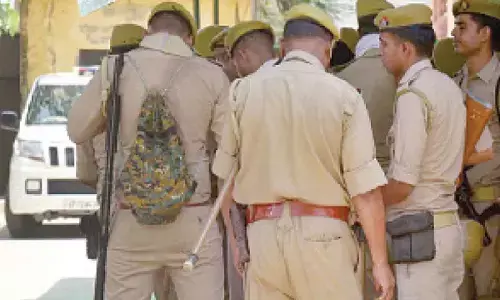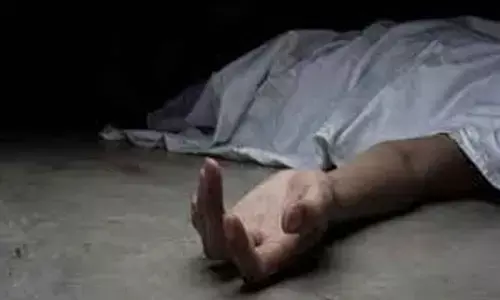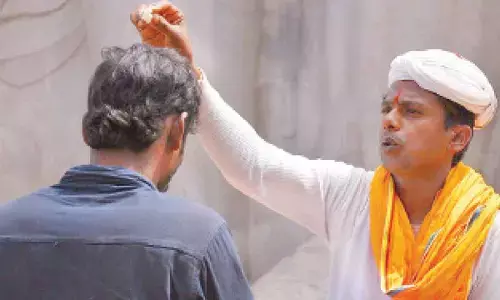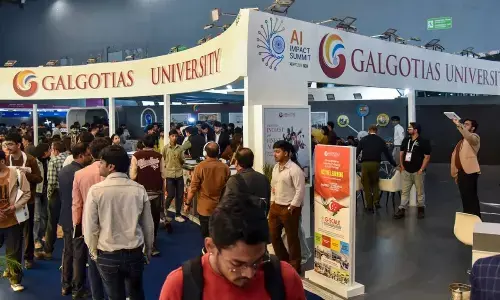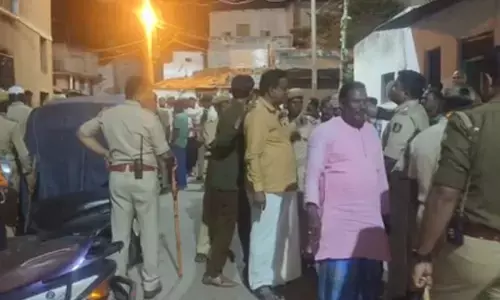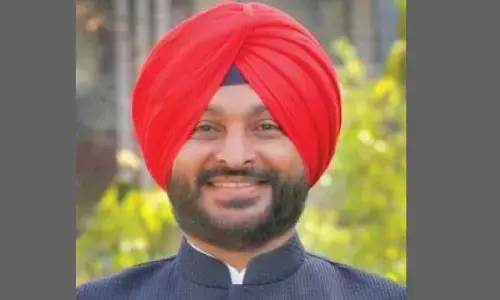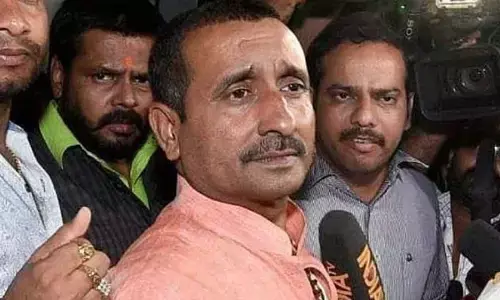Man-made or Act of God?
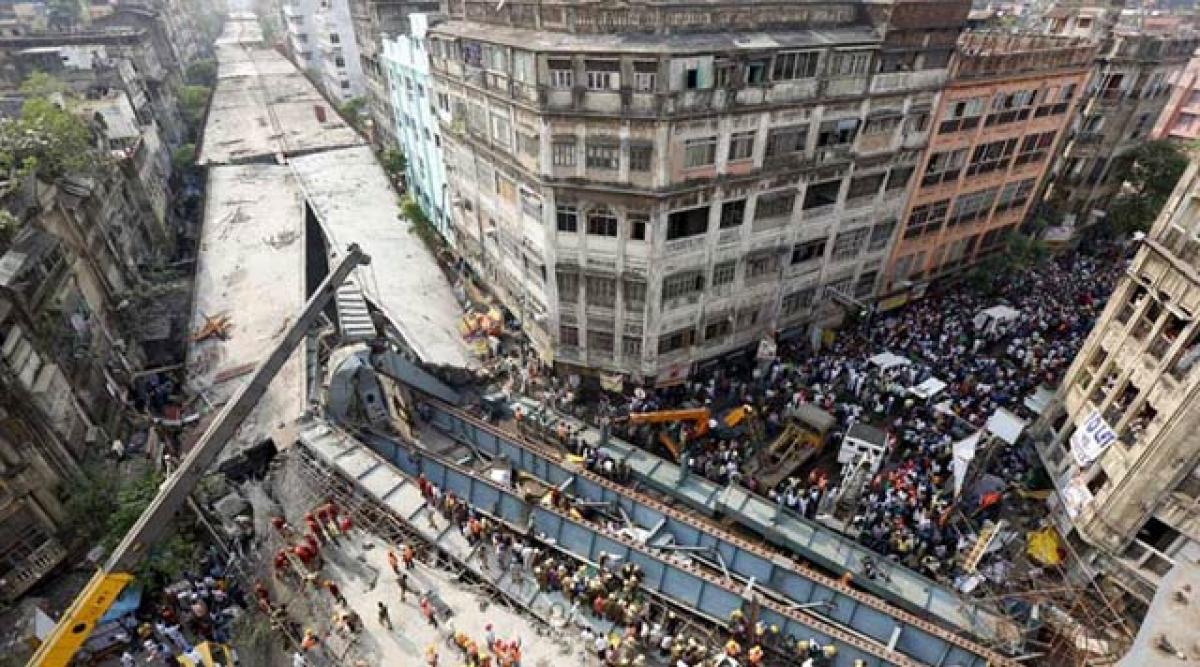
The latest incident of an under-construction bridge collapse in Kolkata’s busy Bara Bazar area, which claimed 27 innocent lives, has sounded alarming bells about the safety of general public across the country.
Bridge collapses
The latest incident of an under-construction bridge collapse in Kolkata’s busy Bara Bazar area, which claimed 27 innocent lives, has sounded alarming bells about the safety of general public across the country. The tragedy also necessitates having a re-look at the durability and viability of all existing as well as under-construction over-bridges and flyovers in the country.
Surprisingly, the construction firm, the Hyderabad-based Iragavarapu Venkata Reddy Construction Limited (IVRCL) has conveniently termed the deadly collapse as an “accident.” An official of the company even went to the extent of labelling it as an ‘act of God,’ perhaps being highly inspired by the bollywood film ‘Oh My God’ in which the insurance company had refused to give claim to shop owner Paresh Rawal whose shop got dramatically destroyed in a calamity and the insurer branded it an ‘act of God.’ I
nvoking the same pretext, the construction firm denied any human error in the unfortunate incident while putting the blame squarely on the God. Before going into details of similar tragedies taking place in the country every now and then, let’s have a look at the background of this ill-fated Kolkata bridge, which had been hanging fire for the past over eight years, as well as the reputation of the company.
The construction for approximately 2 km Vivekananda flyover was contracted in 2008 and the work began in 2009. This was scheduled to complete in 2010 but overshot the deadline multiple times. Chief Minister Mamata Banerjee extended the deadline by 18 months to complete the flyover by February this year and allocated a budget of nearly Rs 165 crore. But only about 60 per cent work was completed.
As of March last year, IVRCL accumulated a debt of over Rs 4,000 crore and reported losses of Rs 672 crore. In December 2015, a consortium of banks that had lent to the company took it over and the company was banned from doing business in Uttar Pradesh and several other States.
Now the million-dollar question arises: If this is the kind of image and controversial nature of the company running in the red, how can one expect superlative end product consisting of all safety standards to protect lives of its users? Perhaps, not. Generally speaking, in India, bids for key infrastructural public projects worth crores of rupees, which require high standards of safety parameters, are awarded on considerations other than good market image, honesty and professionalism as well as economic competence of the firm.
Incessant use of sub-standard material, playing great havoc with lives of people, becomes a routine affair where the supervisory authorities prefer to turn a blind eye due to their chunk of money promised in the project. Resultantly, the fate of such completed, or even uncompleted, projects is there for all of us to see. How can we allow such unscrupulous elements to play with precious lives of our fellow countrymen?
This is not the first incident of bridge collapse in India. We have had several such gory incidents in the past, but every time we refuse to learn a lesson. For example, in December 2009, a deadly accident occurred during construction of Kota-Chambal bridge in Rajasthan.
At least 48 workers had died when scaffolding on the under-construction bridge had collapsed. Small incidents of bridge collapses are common occurrences which possibly take place due to the construction firms’ greed of higher profits and rendering a sub-standard product. And these elements always work hand-in-glove with sharks in the system.
As a precautionary measure, the Centre has ordered safety review of all ongoing highway and bridge projects under the National Highway Authority of India (NHAI). It is pertinent to point out here that recently the Central government has also launched an ambitious programme with an investment of Rs 50,000 crore of building bridges for safe and seamless travel on national highways.
The programme, named as Setu Bharatam, aims to make all national highways free from Railway level crossings by 2019 with construction of 208 Railway Over Bridges (ROBs) and Railway Under Bridges (RUBs) at a cost of Rs 20,800 crore. Similarly, 1500 old bridges will be rehabilitated and reconstructed at a cost of Rs 30,000 crore under the programme.
Undeniably, this programme will go a long way in averting major rail and road collusions and will ensure smooth flow of traffic. Without any earthquake, cyclone, cloud-bursting or tsunami or any other natural calamity, God will not come down personally to cause the only under-construction bridge of Kolkata and having done no harm to other adjoining structures! Therefore, these filmy buff officials of the construction firm only made fun of themselves while terming it an “act of God” to save their skins, being perhaps fully aware of their chain of negligence and lacuna.


